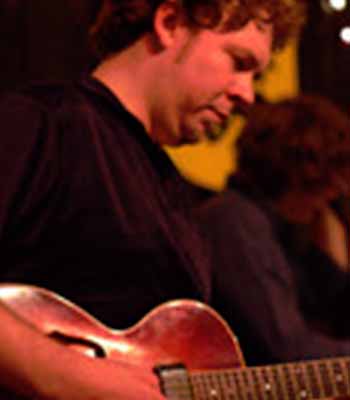Most everybody has picked up a guitar a time or two, maybe even strummed a few chords. But if you've been strumming those A, D and E chords forever and realize there's a limit to what you can actually play if your musical universe is that small, you've also come to realize that you need help. You need guidance. You need guitar lessons! But where should you start? Read on to learn some answers.
A word about equipment
First, understand that there are nearly as many different kinds of guitars as there are genres of guitar music. In terms of the number of strings, the material of which the strings are composed, the width and length of the guitar neck, the size and shape of the guitar body and other variables, there are instruments specifically suited to musical genres such as folk, rock-and-roll, jazz and classical.
For this article-seeing as how you've been living in the land of A, D and E chords-we'll assume that you possess and wish to play a standard, acoustic guitar. (If this is not the case, please refer to other more appropriate articles elsewhere in this section.)
Acoustic guitar lessons
As long as we're making assumptions, let us assume that you own a guitar that is the right size for you (full size, if you're an adult), that it is tunable, and will hold its tune during a reasonable amount of practice and playing.
You'll next need an instructor. In addition to all the old faithful methods of tracking down such a professional, you can now also access the power of the Internet, through sites such as this one and others that exist to help connect students and teachers.
As you consider/interview various instructor candidates, make certain they're able to accommodate your specific needs in terms of location, scheduling, economy and style. Typically-given the portability of a guitar versus, say, a piano-the question of where the lessons will take place isn't a critical factor. Make certain, though, that your prospective instructor can fit you into lesson slots that mesh gracefully with your calendar, and that the rate he or she charges for lessons will mesh gracefully with your budget.
A matter of style
Just as a different type of instrument exists for nearly every different genre of guitar music, such generic differences extend to both instructor and teaching method. As important as it is for you to determine the style of guitar music you wish to learn, it's equally important that the instructor you select either specializes in that style, or at least lists it among various specialties.
If, in your quest, you discover a passion for, say, blues guitar, jazz guitar or a musical style that's more appropriately played on an electric guitar, please see other features elsewhere in this section that provide specific information on those specialties.

About the Author: Chuck Newsome
A lifelong resident of metropolitan Detroit, Chuck Newsome has been working professionally as a musician and educator for the last 12 years. During that time, he has devoted his life to helping young musicians improve and reach their goals. Chuck holds Bachelor of Music (B.M) and Master of Music (M.M.) degrees from Wayne State University. He is currently a faculty member in the Department of Music at Wayne State University, and the Educational Coordinator for the Detroit Jazz Festival. In addition, Chuck is a faculty member at J.C. Heard Jazz Week at Wayne and an Educator in Residence with the Detroit Jazz Festival’s Infusion Program. He has worked with Detroit Public School students at Martin Luther King, Jr. Senior High School, Detroit School of the Arts, Cass Technical High School, Renaissance High School, Duke Ellington Conservatory and Bates Academy. As a dedicated jazz guitarist, Chuck has performed with such Detroit, national and international jazz notables as Joe Lovano, Eddie Daniels, Kurt Elling, John Clayton, Diane Schuur, Sean Jones, Marion Hayden, Chris Collins, Russ Miller, Rob Pipho, Gary Schunk, David Taylor, and Sean Dobbins. He has also been featured as a guest soloist with the Wayne State University Big Band. At the 2012 Detroit Jazz Festival, Chuck appeared twice—as a performer with the Detroit Jazz Guitar Ensemble and as the conductor of the WSU Jazz Big Band featuring Joe Lovano and Judi Silvano. Chuck is an active composer and arranger, with over 100 works to his name.
